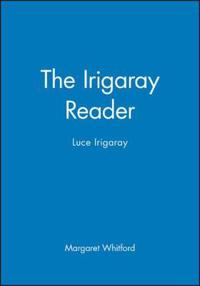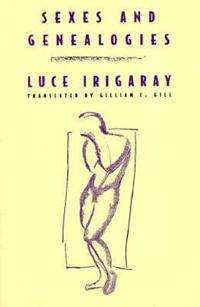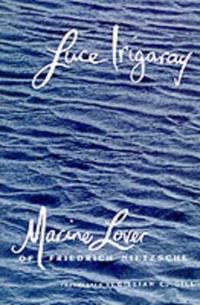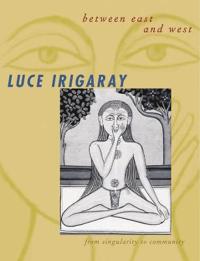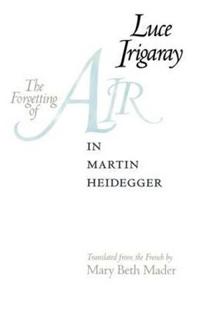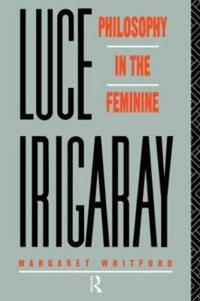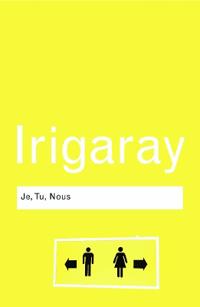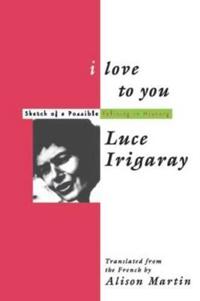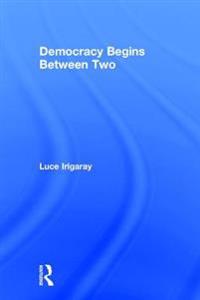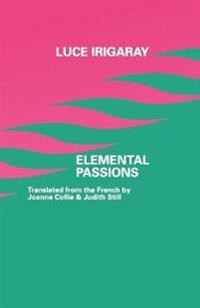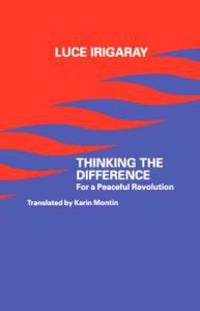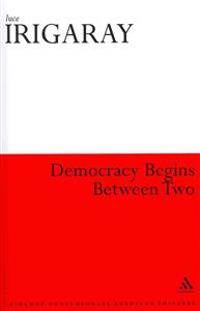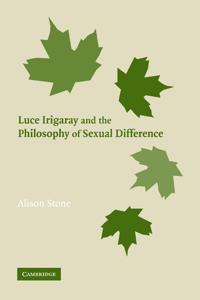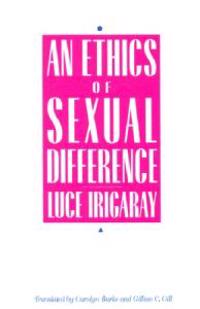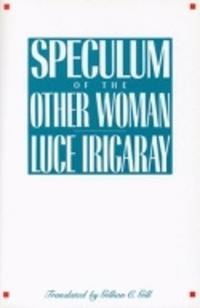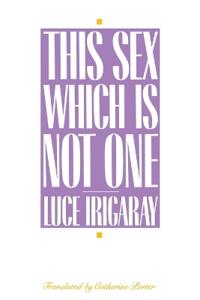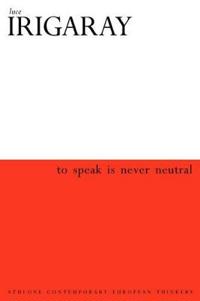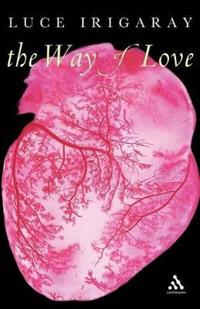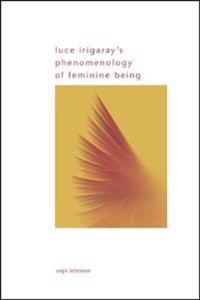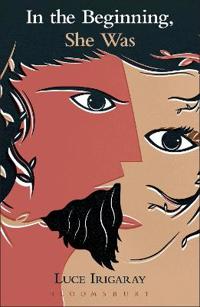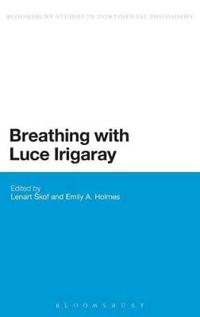The Irigaray Reader: Luce Irigaray (Häftad)
avMargaret Whitford, Luce Irigaray
ISBN: 9780631170433 - UTGIVEN: 1992-04Luce Irigaray is a practising psychoanalyst, and formerly a member of the Ecole freudienne de Paris. She has also held a research post at the Centre National de Research Scientifiques since 1964, where she is now a Director of Research in Philosophy. Irigaray is one of the most well know and controv[...]
Sexes and Geneologies (Häftad)
avLuce Irigaray
ISBN: 9780231070331 - UTGIVEN: 199303In the tradition of Simone de Beauvoir and Julia Kristeva, Luce Irigaray is one of France's most versatile feminist critics. Sexes and Genealogies, a collection of lectures delivered throughout Canada and Europe, introduces her writing to a wider American audience. Irigaray's most famous work, Sp[...]
Marine Lover of Friedrich Nietzsche (Övrig)
avLuce Irigaray
ISBN: 9780231070829 - UTGIVEN: 1991-03-18Published in France in 1980, Marine Lover is the first in a trilogy in which Luce Irigaray links the interrogation of the feminine in post-Hegelian philosophy with a pre-Socratic investigation of the elements. Irigaray undertakes to interrogate Nietzche, the grandfather of poststructuralist philoso[...]
Marine Lover of Friedrich Nietzsche (Häftad)
avLuce Irigaray
ISBN: 9780231070836 - UTGIVEN: 1991-04Published in France in 1980, Marine Lover is the first in a trilogy in which Luce Irigaray links the interrogation of the feminine in post-Hegelian philosophy with a pre-Socratic investigation of the elements. Irigaray undertakes to interrogate Nietzche, the grandfather of poststructuralist philoso[...]
Between East and West: From Singularity to Community (Övrig)
avLuce Irigaray
ISBN: 9780231119344 - UTGIVEN: 2001-11-28With this book we see a philosopher well steeped in the Western tradition thinking through ancient Eastern disciplines, meditating on what it means to learn to breathe, and urging us all at the dawn of a new century to rediscover indigenous Asian cultures. Yogic tradition, according to Irigaray, can[...]
Between East and West (Häftad)
avLuce Irigaray
ISBN: 9780231119351 - UTGIVEN: 2003-05With this book we see a philosopher well steeped in the Western tradition thinking through ancient Eastern disciplines, meditating on what it means to learn to breathe, and urging us all at the dawn of a new century to rediscover indigenous Asian cultures. Yogic tradition, according to Irigaray, can[...]
The Forgetting of Air in Martin Heidegger (Häftad)
avLuce Irigaray
ISBN: 9780292738720 - UTGIVEN: 199912French philosopher Luce Irigaray has become one of the twentieth century's most influential feminist thinkers. Among her many writings are three books (with a projected fourth) in which she challenges the Western tradition's construals of human beings' relations to the four elements--earth, air, fir[...]
Luce Irigaray (Pocket)
avMargaret Whitford
ISBN: 9780415059695 - UTGIVEN: 1991-06First published in 1991. Routledge is an imprint of Taylor & Francis, an informa company.
Je, Tu, Nous (Storpocket)
avLuce Irigaray
ISBN: 9780415771986 - UTGIVEN: 200702Exploring women's experiences of motherhood, abortion, the AIDS crisis and the beauty industry, this book presents one of the most important thinkers of our day in her own words. A passionate celebrator of 'sexual difference', Luce Irigaray was never simply after the social equality that her generat[...]
I Love to You (Häftad)
avLuce Irigaray
ISBN: 9780415907330 - UTGIVEN: 199602French philosopher Luce Irigaray is one of the foremost contemporary scholars in the fields of feminist thought and linguistics. In "I Love to You", she moves from the critique of patriarchy to an exploration of the ground for a possible inter-subjectivity between the two sexes. Continuing her rejec[...]
Democracy Begins Between Two (Häftad)
avLuce Irigaray
ISBN: 9780415918176 - UTGIVEN: 2001-01In Democracy Begins Between Two, Luce Irigaray calls for a form of specific civil rights guaranteeing women a separate civil identity of their own equivalent to-though not simply the same as-that enjoyed by men.[...]
Elemental Passions (Häftad)
avLuce Irigaray
ISBN: 9780485120790 - UTGIVEN: 1992-10The importance of Irigaray's work lies n the fact that feminist and philosophical discourses are brought together in a feminist appropriation of Spinoza. The author draws on both philosophy and psychoanalysis in a rejection of traditional literary modes and thus frees literature from male dominance.[...]
Thinking the Difference (Häftad)
avLuce Irigaray
ISBN: 9780485120905 - UTGIVEN: 199402In these essays, the author discusses how language, religion, law, art science and technology have failed women and why. She goes beyond analysis and commentary to propose concrete changes tailored to women's specificity in all these fields - practical means of ensuring "our" culture is women's as w[...]
Democracy Begins with Two (Häftad)
avLuce Irigaray
ISBN: 9780485121230 - UTGIVEN: 200012In Democracy Begins with Two Luce Irigaray calls for a radical reconsideration of the so-called democratic bases of Western culture. In a series of essays covering the earlier 1990s she argues the urgent need for our society to grant full recognition to both the genders which contribute to its funct[...]
Luce Irigaray and the Philosophy of Sexual Difference
ISBN: 9780521118101 - UTGIVEN: 2009-08Alison Stone offers a feminist defence of the idea that sexual difference is natural, providing a novel interpretation of the later philosophy of Luce Irigaray. She defends Irigaray's unique form of essentialism and her rethinking of the relationship between nature and culture, showing how Irigaray'[...]
An Ethics of Sexual Difference (Pocket)
avLuce Irigaray, Carolyn Burke, Fill Gillian
ISBN: 9780801481451 - UTGIVEN: 199308This Sex Which is Not One (Häftad)
avLuce Irigaray, Burke Porter
ISBN: 9780801493317 - UTGIVEN: 198505To Speak is Never Neutral (Häftad)
avLuce Irigaray
ISBN: 9780826459053 - UTGIVEN: 200203Contributing to our understanding of how scientific language functions., Luce Irigaray aims to dispel notion that scientific language is objective, unveiling the gendered - and, crucially, the prejudicial - dimensions of a range of psychoanalytic discourses. This selection of the range of Luce Iriga[...]
The Way of Love (Häftad)
avLuce Irigaray
ISBN: 9780826473271 - UTGIVEN: 200403The Way of Love asks the question: How can we love each other? Here Luce Irigaray, one of the world's foremost philosophers, presents an extraordinary exploration of desire and the human heart. If Western philosophy has claimed to be a love of wisdom, it has forgotten to become a wisdom of love. We [...]
Luce Irigaray's Phenomenology of Feminine Being (Inbunden)
avVirpi Lehtinen
ISBN: 9781438451275 - UTGIVEN: 2014-06The reception of Luce Irigaray s ideas about feminine identity has centered largely on questions of essentialism, whether criticizing this as a destructive flaw or interpreting it in strategic or pragmatic terms. Staking out an alternative approach, Virpi Lehtinen finds in the phenomenology of Husse[...]
Luce Irigaray's Phenomenology of Feminine Being (Pocket)
avVirpi Lehtinen
ISBN: 9781438451282 - UTGIVEN: 2015-01In the Beginning, She Was (Häftad)
avLuce Irigaray
ISBN: 9781441106377 - UTGIVEN: 201210In this new book, crucial for understanding her journey, Luce Irigaray goes further than in Speculum and questions the work of the Pre-Socratics at the root of our culture. Reminding us of the story of Ulysses and Antigone, she demonstrates how, from the beginning, Western tradition represents an ex[...]
Breathing With Luce Irigaray (Inbunden)
avLenart (EDT) Skof, Emily A. (EDT) Holmes, Claudia (CON) Bruno
ISBN: 9781441115485 - UTGIVEN: 2013-10Contributors to this volume consider the implications of 'the Age of Breath': a spiritual shift in human awareness to the needs of the other figured through breathing. Awareness of the breath allows us to attend to our bodies and the bodies of others, to animals, nature, other cultures, oppressed mi[...]
Why Different (Pocket)
avLuce Irigaray, Sylve`Re Lotringer
ISBN: 9781570270994 - UTGIVEN: 2000-05-01

